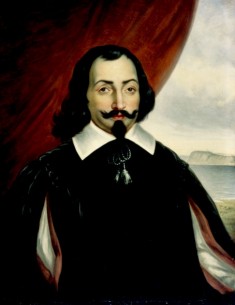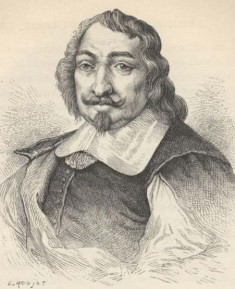The French explorer Samuel de Champlain was born in Brouage, France, in 1574. He is known as the “Father of new France” as he founded Quebec and New France in 1968. Champlain was an explorer, a French navigator, soldier, diplomat and cartographer. He is a very important person in Canadian history because he helped establish the earlier settlements by administering the French colonies in the country, also known as the New World during their time, and developed very accurate maps of the coastlines.
Champlain’s Early Life
The exact date of Champlain’s birth is not known since there are two different baptismal records found under his name. His religion is also not known since he was born into a Catholic town during the times of Protestant rule. Some writers, however, insist that he was born in the years when the Catholics had power in France. Champlain learned how to navigate, create practical reports, and draw nautical charts at a very young age since he was born into a family of mariners. Both his father and his uncle were sailors and navigators.
Early Travels
His first voyage was with his uncle-in-law, who was a navigator on the ship known as the Saint-Julien, in 1598. This was a mission to transport Spanish troops to Cadiz for the Treaty of Vervins. He spent some time in Cadiz alongside his uncle before the ship was chartered to the West Indies. His uncle gave command over the ship and instructed young Champlain to watch over it.
This particular journey lasted two years, and it gave Champlain the opportunity to learn about the different Spanish holdings which included Mexico City and the Caribbean. He was very eager to learn more about traveling and he took notes along the way.
First Trip to North America
During Champlain’s first trip to North America, he only observed fur trade. The expedition was lead by Francois Gave Du Pont who was a navigator and a merchant. Champlain established a strong, life-long friendship with Du Pont after this trip. Du Pont became his mentor, and he educated Champlain about navigation and dealing with the natives.
After his return from the trip, he published an account entitled Concerning the Savages. He wrote about meeting the chief of some tribes and establishing good relationships between the Montagnias, Begurat, and Algonquin people.
The Founding of Quebec City
 Pierre Duga de Mons, a Protestant merchant who led exploratory journeys wanted Champlain to start a new French colony in St. Lawrence. Champlain had worked with him in the past during some trades. Duga equipped Champlain at his own expense and planned for the young explorer to head out spring of 1608.
Pierre Duga de Mons, a Protestant merchant who led exploratory journeys wanted Champlain to start a new French colony in St. Lawrence. Champlain had worked with him in the past during some trades. Duga equipped Champlain at his own expense and planned for the young explorer to head out spring of 1608.
Champlain commanded the main ship called Don-de-Dieu, which translated to “the Gift of God.” His friend, Du Pont, commanded another ship which was also part of this expedition. They arrived in the lower area of St. Lawrence, known as Tadoussac, in June. Champlain landed at an area which they called “point of Quebec” a month later, on July 3, 1608. They fortified the area by erecting three wooden buildings. This was the beginning of what is now known as Quebec City.
Interactions with the Natives
Champlain wanted to develop a better relationship with the native tribes of the area. In the summer of 1609, he created an alliance with the Huron, the Montagnais, the Alonquin and the Etchemin tribes. They were the natives who lived along the edge of the St. Lawrence River. Champlain helped these tribes fight a war against the Irquois people, a tribe further down south. After killing three Irquois chiefs, the tribe fled. This was the beginning of bad relations between the French and the Irquois, which lasted an entire century.
Return to Quebec and Death
Champlain traveled back and forth from France to Quebec during his later years. His last return was recorded on May 22, 1633. He was given the commission of Lieutenant General over New France. Even though he did not have the title of Governor, he was treated as if he held this position.
Just two years after his return, he suffered a stroke. Champlain died just two months after on Christmas day in 1635, leaving no heirs. Everything that he owned, including his French property, went to his wife, Helene.
